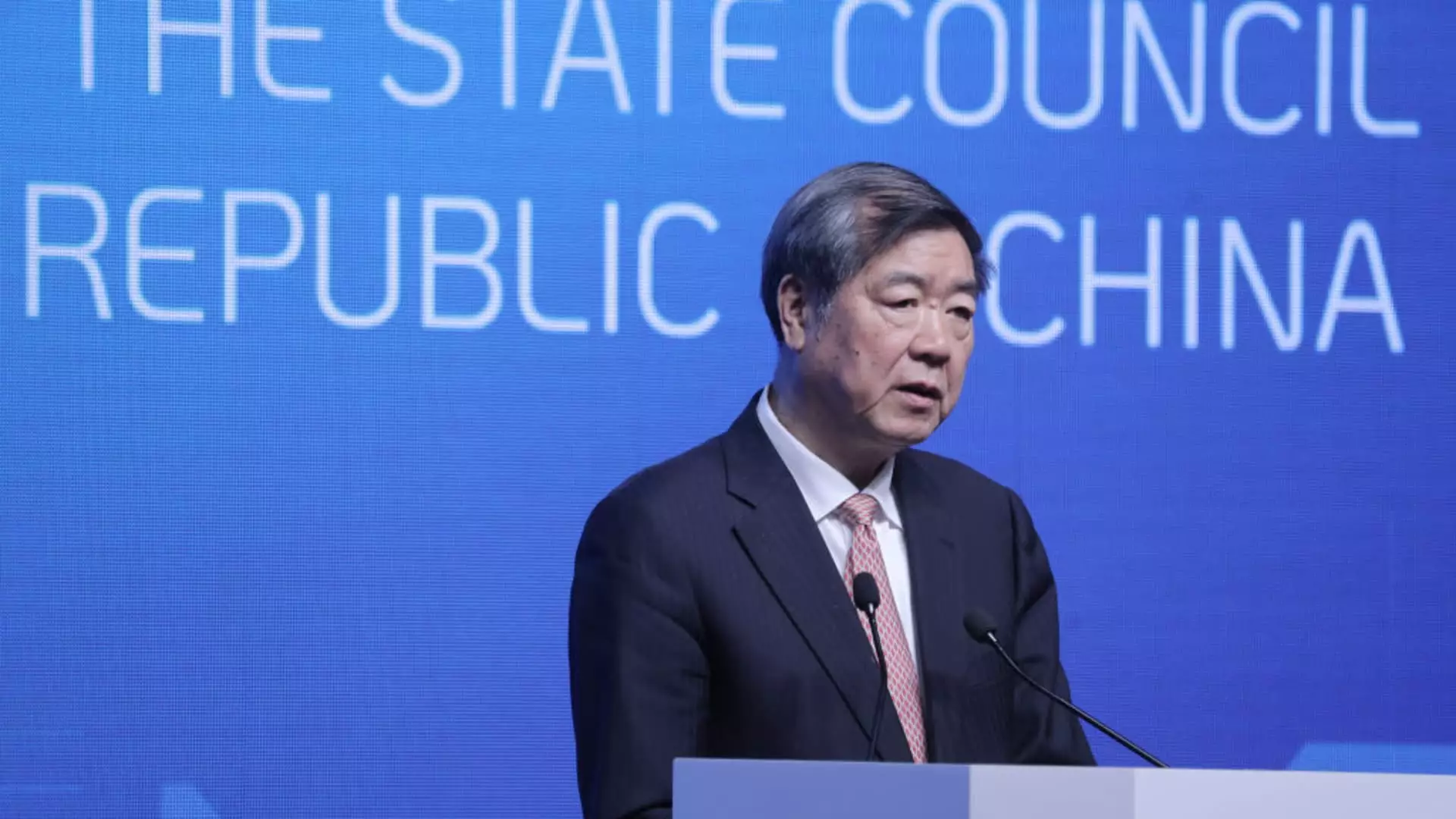In recent years, Hong Kong has faced significant economic challenges, marked by a downturn in its financial markets, decreased capital inflows, and high-profile corporate exits. As the region grapples with a prolonged decline, the urgency for revitalization has never been more pronounced. Vice Premier He Lifeng’s recent declarations during the Global Financial Leaders Investment Summit set the stage for a potential transformation by underscoring the necessity of innovation and supportive financial policies. His guidance aims not only to reinforce Hong Kong’s status as a core international financial hub but also to foster a resilient ecosystem that can compete globally.
At the summit, He Lifeng discussed the auspicious trajectory anticipated for Hong Kong’s economy, asserting that the city would benefit from a variety of stimulus measures aimed at nurturing profitability within its markets. This government backing is crucial; it serves as a beacon of confidence amid the tumultuous environment that has led to a mass exit of capital and declining performance in key financial indexes, such as the Hang Seng. In his speech, He emphasized the integration of Hong Kong’s economy with mainland China’s. This strategic alignment presents both challenges and opportunities, as it allows Hong Kong to tap into the vast resources and network of mainland enterprises, especially those looking to secure offshore listings.
A focus on innovation is essential for reversing the fortunes of Hong Kong’s financial sector. As articulated by Li Yunze, Minister of the National Financial Regulatory Administration, nearly 80% of mainland companies aiming for foreign listings are inclined to prefer Hong Kong. This statistic highlights the critical position the city holds within Asia’s financial framework. However, the task ahead is multifaceted; it involves not only attracting capital through overseas investments but also creating a conducive environment for local and international firms to flourish. It requires strategic policies that draw foreign businesses, including significant modifications to capital requirements and regulations impacting investor access.
Challenges in the Global Financial Context
Despite the potential upswing associated with these new measures, the backdrop of global financial instability cannot be ignored. Major banks have reportedly downsized operations in Hong Kong, displacing significant numbers of employees and impacting the real economy of the region. The decline in IPO activity—down by 16% in the first half of the year—illustrates a poignant trend where confidence in the Hong Kong markets has waned. Compounding this situation, external pressures, such as heightened competition from other financial centers in Southeast Asia, further inhibit growth and recovery.
Infrastructural reforms aimed at attracting foreign investment represent a forward-thinking strategy for alleviating these economic pressures. Recent policy updates permitting foreign individuals to invest in publicly-listed companies signal a broader shift toward a more open financial ecosystem. The willingness of bankers and investors from giants like HSBC, Standard Chartered, and Citigroup to participate in the recent summit reaffirms the importance of these initiatives. While diversifying Hong Kong’s economic base, this engagement is vital in restoring confidence among both local and international stakeholders.
The Future of Hong Kong as a Financial Hub
Looking ahead, the synthesis of domestic development with international opportunities appears essential for Hong Kong’s resurgence as a financial powerhouse. As Vice Premier He Lifeng navigates the complexities of the economic landscape, engaging with global financial leaders will be paramount in realizing the city’s potential. Enhanced cooperation between domestic banks and international entities may prove beneficial, nurturing a robust financial foundation. Ultimately, the aim remains clear: to transform Hong Kong into an adaptive, thriving financial epicenter where innovation and investment can drive sustained economic growth.
The road to recovery and revitalization is fraught with challenges, yet the opportunity for Hong Kong exists in its ability to embrace innovation while fortifying its ties to mainland China. Modern policies promising greater access to international investors and the constructive integration of local and global financial frameworks are steps in the right direction. If executed thoughtfully, these combined efforts may very well pave the path to a brighter, more competitive future for Hong Kong in the global financial arena.


Leave a Reply